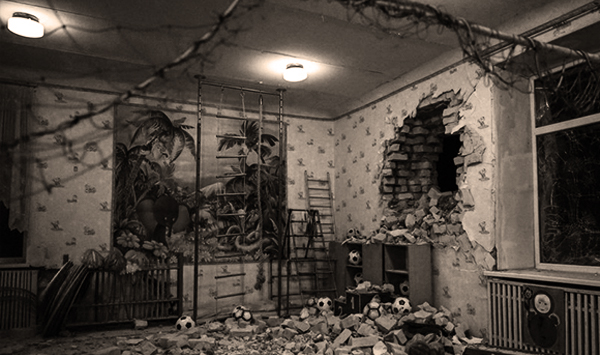Français | English
For the other articles see > SPECIAL ARCHIVE UKRAINE
It has been 6 months now that the Russian regime has invaded its Ukrainian neighbour, and 8 years since it launched a war of annexation against Ukrainian territories, beginning with Crimea and a part of Donbass.
Even if maps redraw the borders in each historical period where wars occur; even if these wars or installation of totalitarian regimes organize the deportation of peoples, nonetheless, the identities of those populations who established common cultures and languages, fed by exchanges, remain embedded in these lands and their geography.
The Middle-East is an obvious illustration of this phenomenon, beyond the Empires and colonial powers that dominated, pillaged, shared and remodelled it. Why the Kurds, the Persians, the Assyrians, the Turkmens, the Arabs, for example …? And if one looks closer still, the presence of other peoples whose names and cultures they assimilated, which were transmitted nonetheless and whose vestiges have reached us. Particularities only? No. Human history.
Passing judgement after the fact and centuries later is out of the question, as to who were the most legitimate to exercise their domination through war, through conquest or by wiping out the very people living and co-existing peacefully in social exchanges. But although humans have worked at devising Nations, these peaceful harbors are precarious on this planet, and politically motivated. As soon as wars justified by economic or land requirements flare up again, buried identities serve as fuel, no matter what their existential legitimacy may be, outside of these considerations. And, usually, the source of the war itself is motivated by identity erected into a political system born of rewritings of history from which all notions of a mosaic of peoples have been erased. This is without even mentioning the First Nations. Such is the case where Turkicity is concerned, consolidated and exalted through genocide, erected into an indivisible republic, exacerbated by nationalism, itself born of the collapse of an Empire brought down by others.
Currently and in the coming years, we are in the centennial of these “treaties” that remodelled the Middle East in the first half of the 20th century, through dint of the strength of the Western victors and, sometimes, with the use of physical rulers applied to maps. One example of the gaping wounds left unhealed throughout history is the four-way sharing effected by the Lausanne treaty with the attribution of each one of these geographical and population shares of Kurdistan, thus designated by its majority population (to Iran, Turkey, Irak, Syria), the declaration of the Turkish Republic in 1923. Here, the fate of Peoples was sealed in blood spilled and yet more to be spilled in the future.
More recently, at the end of the 90s, the agreement imposed to end the war in ex-Yugoslavia, this time on the basis of an “ethnic” division, in an ultra-nationalistic context, bequeathed a war zone to Europe, one never extinguished and always ready to flare up again.
This detour through the Middle-East — which I could just as well have done it through Chili, Argentina or Brazil with characteristics also based on genocides, colonization and pillaging, still ongoing nowadays under more “modern and civilized” forms — this detour can serve as a reminder that, experienced on the scale of a lifetime, the emotions and commitments arising from history, may appear laughable. Emotions need history for meaning, and in order to make attempts at understanding.
Must I add that this outlook applied to the Orient and to China would lead to the same observations. Human history knows no borders, it creates them, tears them apart, builds them up into prisons or walls and, paradoxically today, this still occurs even in a globalized capitalist world. Nationalist indrawing prospers in this world-wide financial capitalism and “fascistic-leaning” orientations have never better accommodated themselves of this economic liberalism, to the point of using it as a rampart.
Thus is it complicated for a libertarian to acknowledge the existence of “a Ukrainian sense of being”, even more so if it translates into “a feeling of national belonging” invoked in this Russian aggression. Does it rise up out of common history of a People, or is it simply a political construct justifying power objectives?
Thus, a first question flowing from my long detour, one that does not obliterate in any way what I developed in previous articles, in a refusal of campism and support for the Ukrainian People in the current situation of an aggression of which they are the victims. The second will be on matters of territories and on why conditions are not present for the “negotiation” of a durable peace in the short term, notwithstanding the various forms of abdication pure and simple of Ukraine in front of the Russian regime, as suggested under different guises. The last will be about Nation-States, father of all murders among friends.
Three questions on a background of news where war and threats in Europe combine with climactic emergencies and the approach of a nth crisis in capitalism.
To be continued..
Vladimir – You want to be rid of him?
Pozzo – Note that I could have been in his place and he in mine. If chance had not intervened. To each his due.
Vladimir – You want to be rid of him?
Pozzo – What did you say?
Vladimir – You want to be rid of him?
Pozzo – Indeed. But instead of chasing him away, as I could have done, I mean, instead of simply throwing him out with kicks in the ass, I take him, such is my kindness, to the market of the Holy Savior, where I expect to get something in exchange. If truth be told, chasing aways such beings is impossible. The right thing to do is to kill them.Samuel Beckett, Waiting for Godot, Act 1.
For the other articles see > SPECIAL ARCHIVE UKRAINE
Translation from French by Renée Lucie Bourges
Support Kedistan, MAKE A CONTRIBUTION.




